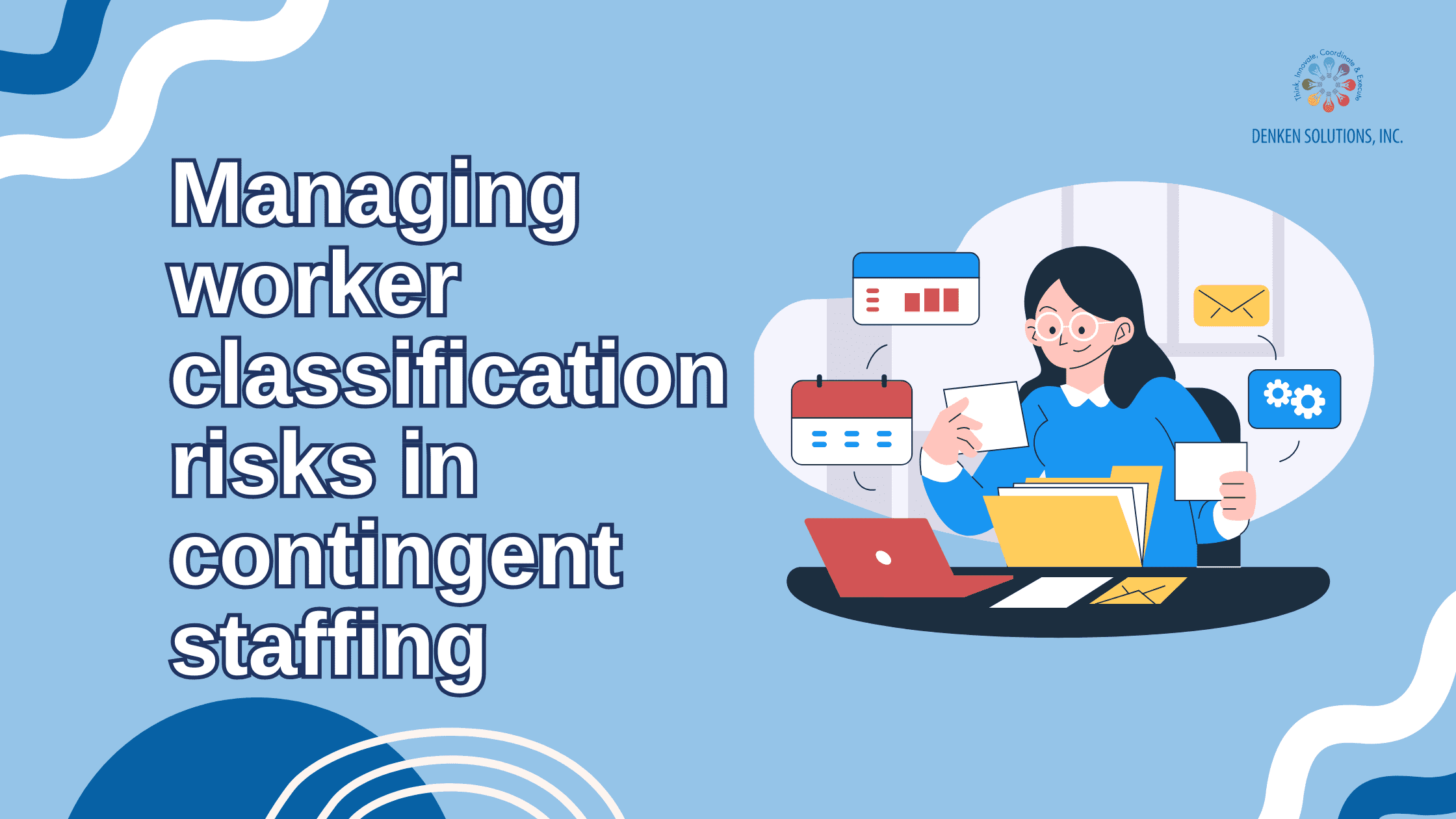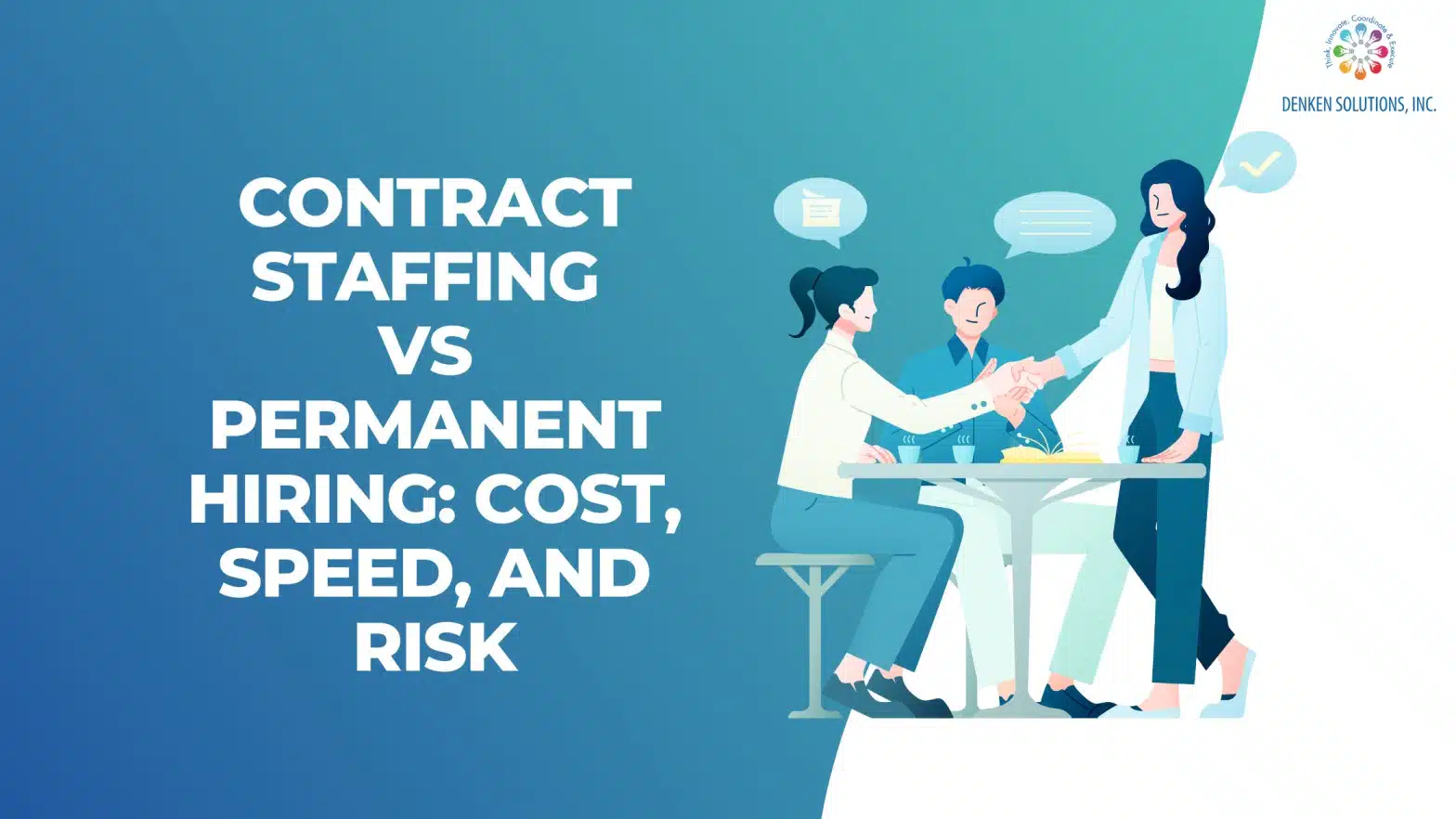While most companies operating in rapidly evolving industries such as manufacturing and engineering, IT, and healthcare have started switching to a contingent workforce model, banks and financial institutions are still in a dilemma. This is primarily because of the rise in cybersecurity attacks, fraudulent activities, and compliance issues, increasing the vulnerabilities of banks and other financial institutions.
Though the work-from-home experiment may not sound fruitful for banks, the boons of contingent staffing in maintaining banking workforce flexibility during economic downturns cannot be entirely overlooked! In addition to closing skill and knowledge gaps and coping with aging workforce challenges, the contingent workforce in banking allows employers to undertake a strategic approach to deal with economic crises.
In this article, we will discuss how a contingent workforce in banking can enable employers to mitigate unforeseen crises arising from both internal business situations and external market conditions.
How economic crisis affects banks
The U.S. banking system is the second largest in the world, coming right after China. Though U.S. banks and financial institutions are found to be somewhat immune to the economic shocks arising from the COVID-19 pandemic and the ongoing political unrest between other countries, the banking system was not so secure in the face of the Great Recession in 2008. Both short-term and long-term financial impacts were noticed in the banking sector, leading to inefficient debt management, a drop in asset values, and liquidity constraints. Such crisis situations also lead to numerous operational challenges resulting from the decline in consumer demand and increase in staff layoffs. Besides all these, the regulatory scrutiny heightened, causing the financial institutions to implement strict compliance policies.
To counteract the heavy aftermath of economic crises and to prevent undergoing major downfalls in the future, banks need to have strategic resolution plans. Some of these include elevating risk management practices and frameworks, implementing countercyclical policies, strengthening regulatory compliance, utilizing advanced digital tools and technologies, improving customer communication strategies, and streamlining operations to curb costs. Most of the companies are aware of these resolutions and have prioritized their implementation ever since the 2008 financial crisis. However, there is one strategic approach that banks often overlook when deciding on their crisis management strategies: an ideal workforce.
How a contingent workforce in banking helps
With contingent staffing, you can develop an ideal workforce that can help you deal with economic crises and their heavy consequences. Let’s see how:
- Allows you to make prompt adjustments to your staffing levels
You can hire and engage contingent workers to meet your business needs during crisis hours and release them when your job is done, which means no long-term commitments and no fixed salaries! Be it a shift in consumer preferences or massive regulatory changes, a contingent workforce in banking helps you stay flexible and agile in all circumstances.
Let’s take the case of the 2008 financial crisis, when banks witnessed an increase in high-risk loan defaults. You can bring such situations under control by maximizing your risk management team with contingent workers, letting them handle the workload for the time being. Soon after the crisis abates, you can scale down the team by releasing those contingent workers.
Related read: Enhancing Agility in the Banking Sector with Contingent Staffing Solutions
- Grants access to hard-to-find talents
Apart from bringing in the need to adjust staffing levels and cut down costs, economic crises for banks often call for niche expertise. The skills and competencies required to excel in regulatory compliance, elevate risk management structures, or attain operational efficiency may not be present in your existing teams. If we talk about the 2008 financial crisis again, new regulations such as the Dodd-Frank Wall Street Reform and Consumer Protection Act came into effect. In such cases, banks may lack the desired skills and knowledge in their existing teams to support and channel the changes. By deploying a contingent workforce with niche expertise, employers can efficiently handle such changes. Similarly, to foster digital transformation in products and services, banks require top-grade IT skills and competencies that they can get through contingent staffing solutions.
- Helps remain operationally resilient in every situation
One of the top benefits of a contingent workforce in banking is that you can deploy temporary workers at high speed to adhere to changing economic conditions. For instance, a new technology emerged in the banking and financial sector, and your competitors have started utilizing it to elevate customer experience. You neither have the desired IT skills in your existing workforce to support the innovation nor a high amount of budget to deploy a fixed, full-time workforce with the required skills. During such hours of need, you can quickly deploy a contingent workforce with highly skilled and qualified workers who can facilitate technological innovation in your business, thus enabling you to stay resilient and competitive.
- Attain cost-efficiency
By filling up roles for a set period of time, contingent workers help banks and financial institutions save a huge amount of costs associated with full-time employees. The overhead costs related to employee training, benefits, perks, etc., are saved. Besides that, the contingent workers seek payment either on a timely basis or on a task basis. During economic downturns, banks already undergo massive financial crises and seek ways to cut off costs. As such, the cost efficiency that contingent staffing solutions bring in is an added advantage.
Conclusion
A contingent workforce in banking proves to be advantageous in connecting employers with hard-to-find talents who can support and drive any change or innovation. It also gives the convenience of adjusting staffing levels and remaining resilient in the face of economic turbulence. Apart from that, contingent staffing solutions can help banks and financial institutions curb overhead costs that usually come with full-time employment.
To deploy a contingent workforce in your banking and financial services business, all you need to do is partner with an experienced and professional staffing agency like Denken Solutions. With an array of contingent talents in their pool, Denken can help you connect with top candidates who can help you attain banking workforce flexibility.



